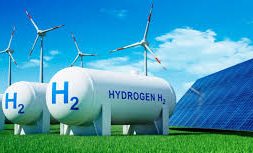
The NITI Aayog’s Draft National Energy Policy has evoked strong reaction from the ruling party BJP. No sooner was the draft made public, its proposal to corporatise the seven subsidiaries of Coal India Ltd into independent companies came in for criticism. National Spokesperson BJP and energy expert Narendra Taneja said, “Breaking up Coal India into several independent companies is not a good idea. There is no such thinking, no such plan in the party or in the government.” “The NDA government has transformed Coal India into a great performer in a short period of just three years. The focus is entirely on better production, better technology and better overall delivery,” he added.
The government think-tank has proposed allowing Coal India’s seven subsidiaries to compete against one another in an open coal market. The draft is broadly based on four key objectives: access at affordable prices, improved security and independence, greater sustainability and economic growth. It has also identified seven areas of intervention and has suggested optimisation in each of them. These are energy consumption by businesses, households, transportation and agriculture, energy efficiency/de-carbonisation measures on the demand side, production and distribution of coal, electricity generation and transmission and distribution. In addition to these, the NITI Aayog has suggested augmenting supply of oil and gas, both by domestic exploration and production and through acquisition of overseas acreages. Refining and distribution of oil and gas and installation, generation and distribution of renewable energy have also been identified for interventions.
The draft also says that the share of solar and wind is expected to be 14-18 per cent and 9-11 per cent in electricity, and 3-5 per cent and 2-3 per cent in the primary commercial energy mix by 2040. However, oil and gas would have almost maintained their shares of 26 per cent and 6.5 per cent in 2015-16 to 25-27 per cent and 8-9 per cent in 2040, respectively. This will be in spite of a more than three-fold increase in gas consumption, owing to large increase in total energy, the increase in gas would be less in percentage terms. While coal is likely to rise in absolute terms (nearly double), in relative terms, its contribution is expected to reduce from 58 per cent in 2015 to 44-50 per cent in 2040.
The overall share of fossil fuels is expected to come down from 81 per cent in 2012 to 78 per cent by 2040. In terms of import dependence for oil and gas is estimated to rise to 81-88 per cent and 35-51 per cent by 2040. Therefore, while registering a 2.7-3.2 times growth in energy supply, the country’s dependence on overseas supply is expected to increase.










